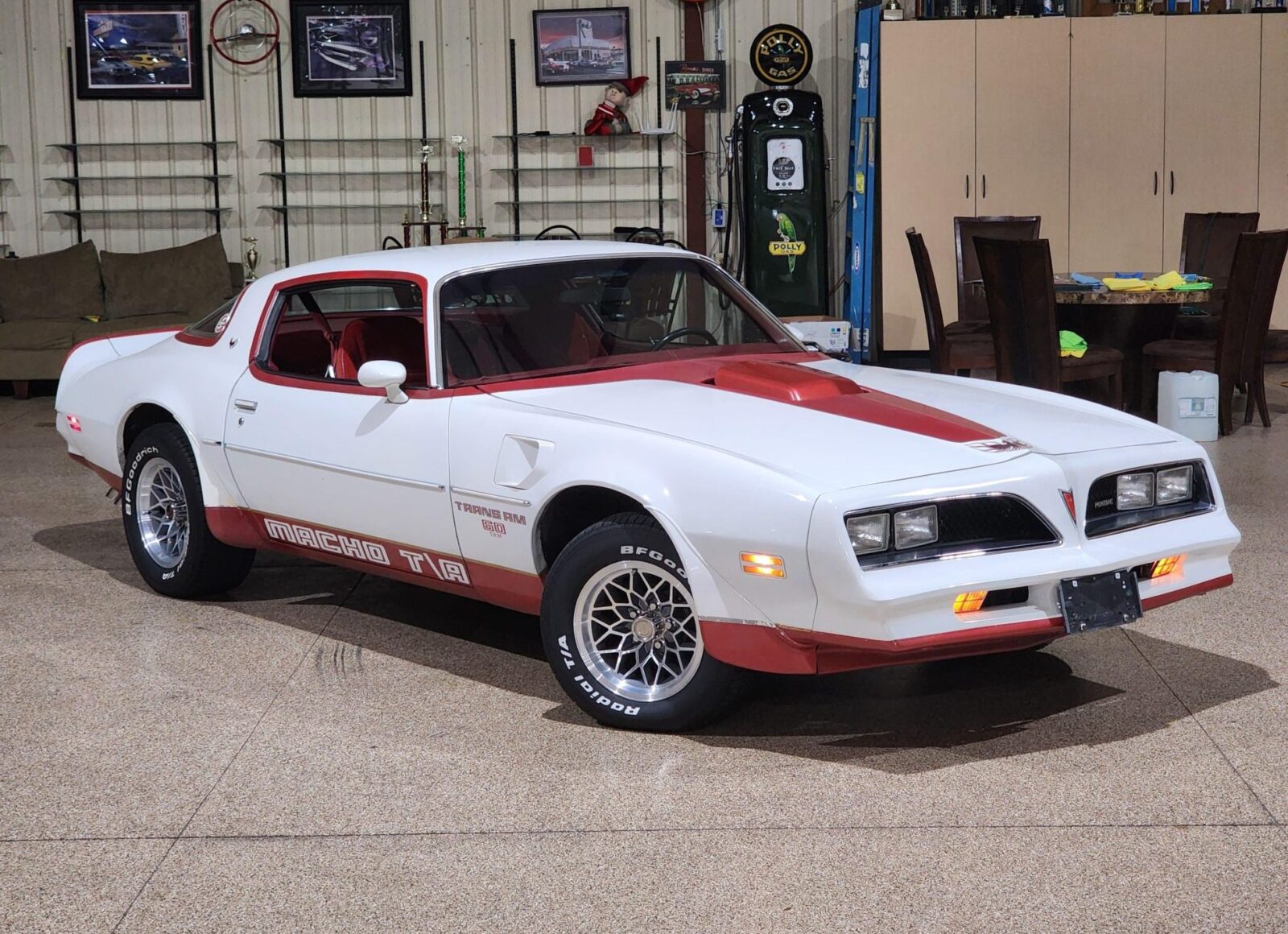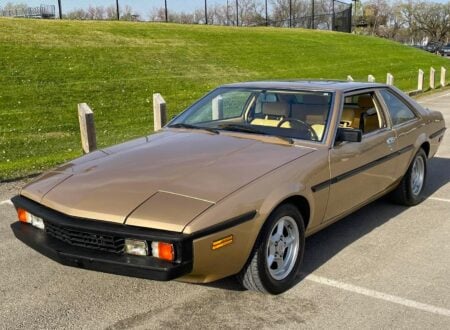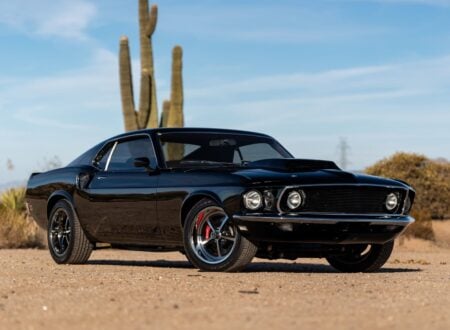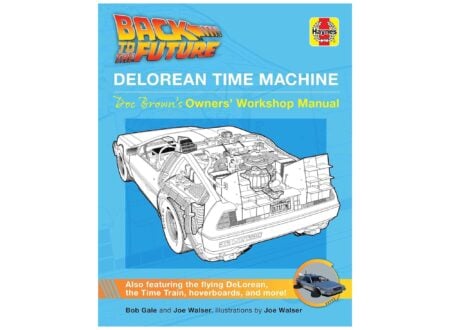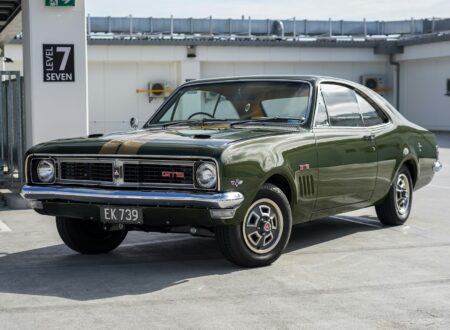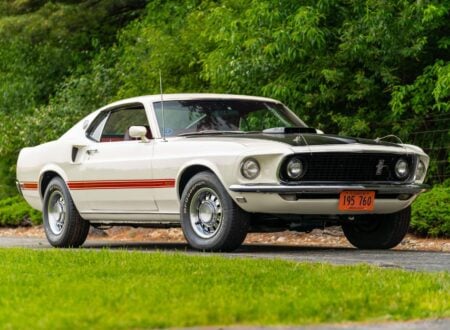This is an original 1978 Pontiac Firebird Macho Trans Am, it has what is quite possibly the most 1970s-sounding name of any car from the period, and it was only available to buy from the Mecham Pontiac dealership in Glendale, Arizona.
Similar to the Shelby Mustangs from a decade earlier, the Macho Trans Ams were modified by brothers Dennis and Kyle Mecham to be among the fastest production muscle cars in the country at the time. Modifications included engine tuning, suspension, paint, and exhaust systems, only approximately 400 were made between 1977 and 1980.
Fast Facts – The Pontiac Firebird “Macho” Trans Am
- Dennis and Kyle Mecham were working at their family Pontiac Dealership in Glendale, Arizona in the mid-1970s when, disappointed with the terminal decline in production car horsepower figures, they decided to take action and rectify the situation.
- They started out by taking a factory-fresh Trans Am that had been ordered with the W72/L78 package. In standard trim these vehicles could manage a mid-15 second quarter mile, which was considered good for a production car at the time, largely due to increasing emissions restrictions that were strangling engines.
- They then modified this brand new Trans Am by re-jetting the carburetor, adding headers and a true dual exhaust, modifying the suspension, making the hood scoop functional rather than cosmetic, and recurving the distributor. Power and performance was notably improved, but legally the cars had to be sold as used rather than new.
- They named their creation the DKM Macho Trans Am (DKM coming from Dennis and Kyle Mecham) and it cost an additional $3,188 USD over the price of a new Trans Am, that’s the equivalent of $16,225 USD in 2024 dollars. Approximately 400 were sold, and they were among the fastest new muscle cars money could buy in the country at the time.
Dennis and Kyle Mecham: Building A Better Firebird
As the 1970s progressed and US emissions restrictions became ever more strict, there were many who sought to get around this legislation and bring back America’s muscle car golden age from the 1960s. One pair of brothers in Glendale, Arizona became nationally famous in car circles for their efforts in this regard, they called their creation the DKM Macho Trans Am (DKM coming from Dennis and Kyle Mecham), and they succeeded in selling hundreds of them.
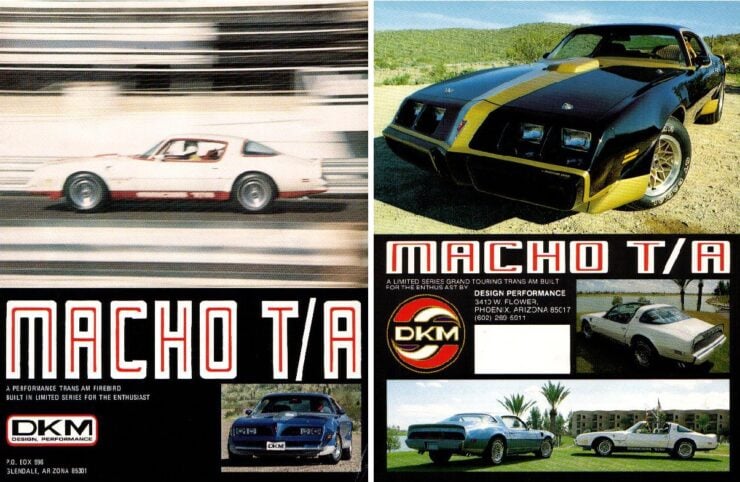

The Mecham brothers worked at their family’s Pontiac Dealership, and as a result they had unfettered access to the latest and greatest Pontiacs fresh from the factory. They took a brand new Pontiac Trans Am fitted with the 400 cubic inch V8 and the W72/L78 package, then set to work.
They re-jetted the carburetor, prioritizing performance over emissions, recurved the distributor, added free-flowing Hooker headers, a true dual exhaust system, and a functional hood scoop to provide an unlimited rush of fresh cool air for the intake.
With the restrictions largely removed, this modified engine offered significantly improved performance and responsiveness. Suspension modifications were then added, new front springs to lower the nose and a realignment of suspension settings front and back, and Koni dampers on all four corners.
Both the handling and performance of these Macho Trans Ams was significantly better than their factory-fresh brethren, but this performance came at a cost – an additional $3,188 USD over the price of a new Trans Am. The equivalent to $16,225 USD in 2024.
Despite this cost, the Mecham brothers were able to sell approximately 400 examples of their creation between 1977 and 1980, and they would ride the wave of this success, selling new modified vehicles in the 1980s, 1990s, and beyond.
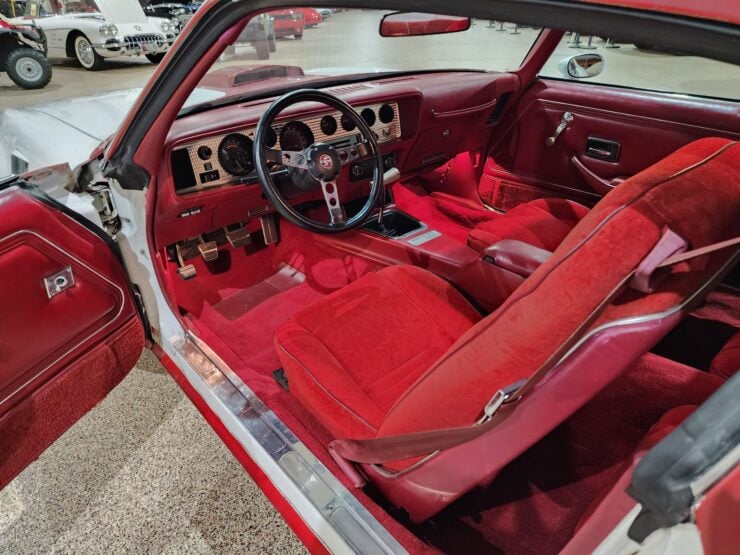

The 1978 Pontiac Firebird Macho Trans Am Shown Here
The car you see here is an original 1978 Pontiac Firebird Macho Trans Am, it’s said to be the 60th of the 202 cars made for 1978, and it’s finished in Cameo White with Red “Macho T/A” graphics over a red interior.
This vehicle is well-equipped by the standards of the time, with a shaker hood, 15″ snowflake alloy wheels, front power disc brakes, power steering, a Hurst shifter and a 4-speed manual transmission, air conditioning, and an Alpine AM/FM/cassette stereo system.
This Macho Trans Am is riding on 245/60 front and 255/60 rear BFGoodrich Radial T/A white-letter tires, and the front disc brakes have been upgraded with cross-drilled and slotted rotors. Inside you’ll find a quintessentially 1970s Carmine velour interior, with twin plush bucket seats up and two rear seats in a 2+2 configuration.
The carpeting, door cards, dashboard, center console, and ceiling are all matching red, making for a rather eye-catching cabin. There are plenty of clues as to this car’s identity on exhibit, including “Macho T/A” lettering on the trunk lid and rocker panels, a Mecham Racing banner across the rear window, and “60 DKM” graphics located below the fender vents.
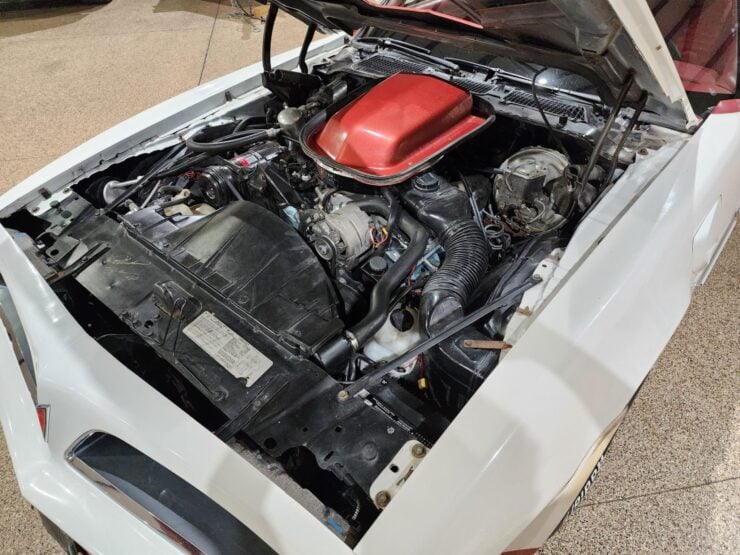

You’ll find that the glovebox door carries the signatures of Dennis and Kyle Mecham, the brothers have also autographed the radiator cowl under the hood. It’s not known exactly how many original Macho Trans Ams remain in the world, it is known that a significant number have disappeared, likely due to accidents, rust, and other junkyard fates, so surviving examples are highly sought after.
The car you see here is now being offered for sale on Bring a Trailer out of Mobile, Alabama with a clean Alabama title, and it benefits from a recent tune-up and an oil change. If you’d like to read more about it or register to bid you can visit the listing here.
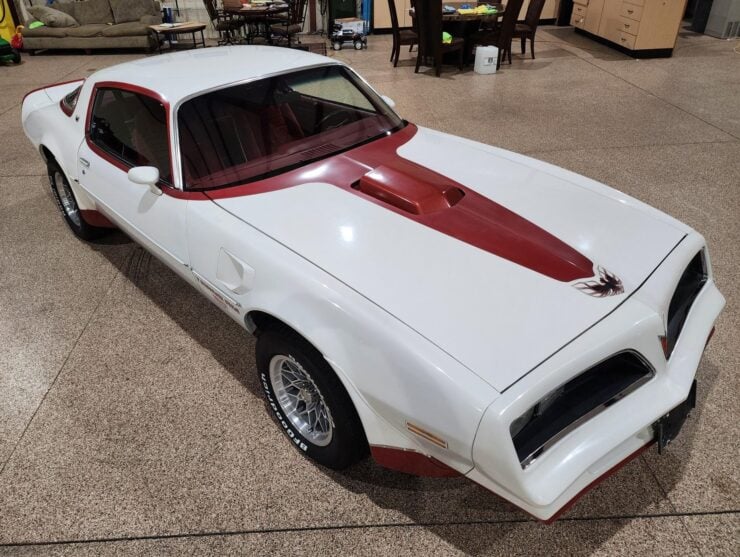
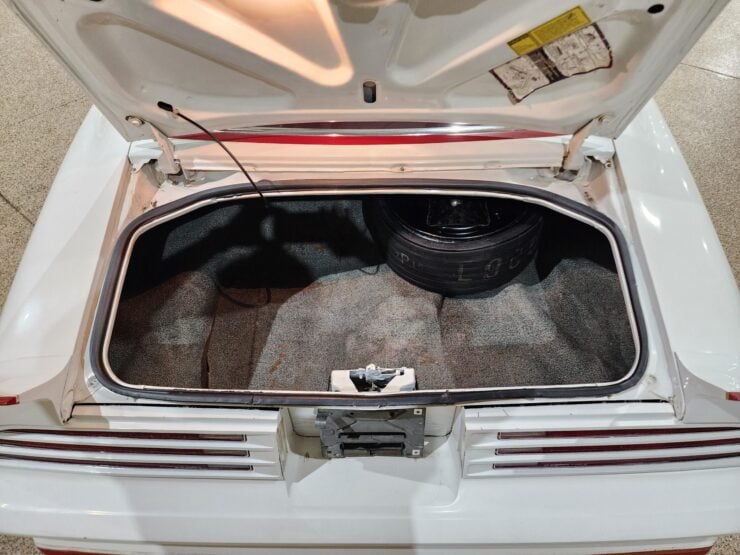
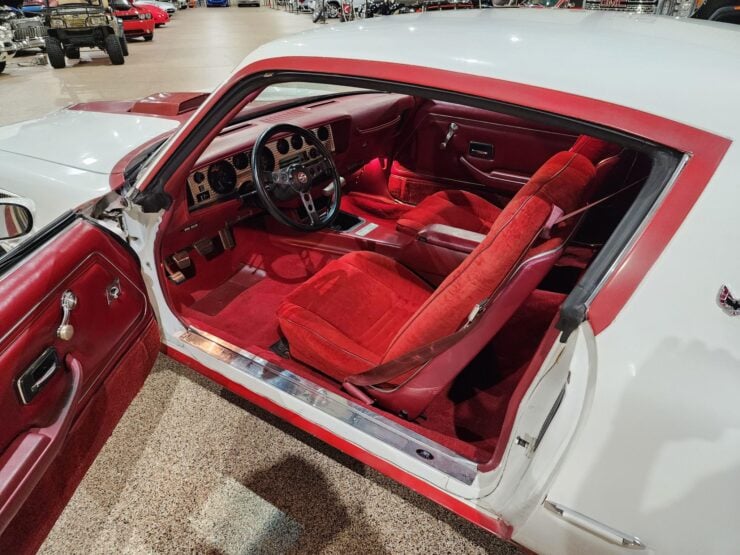
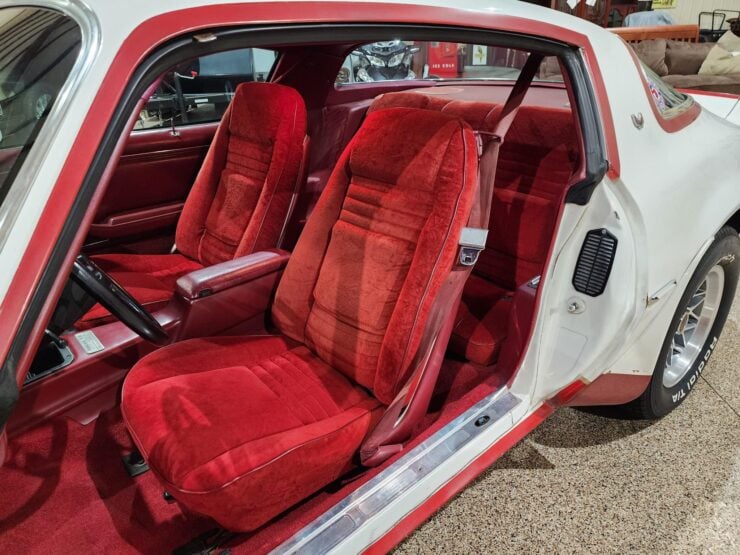
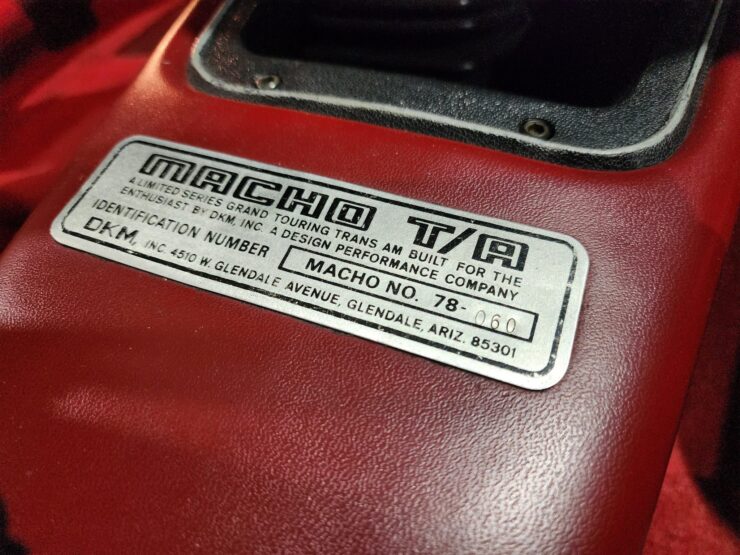
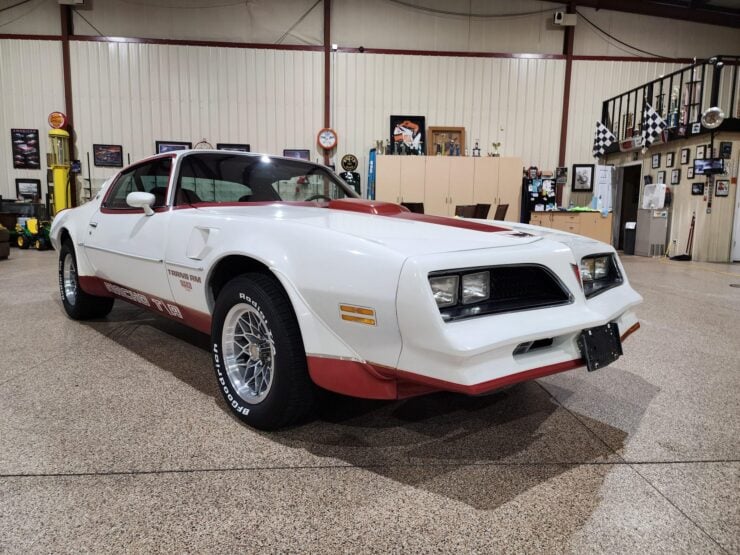
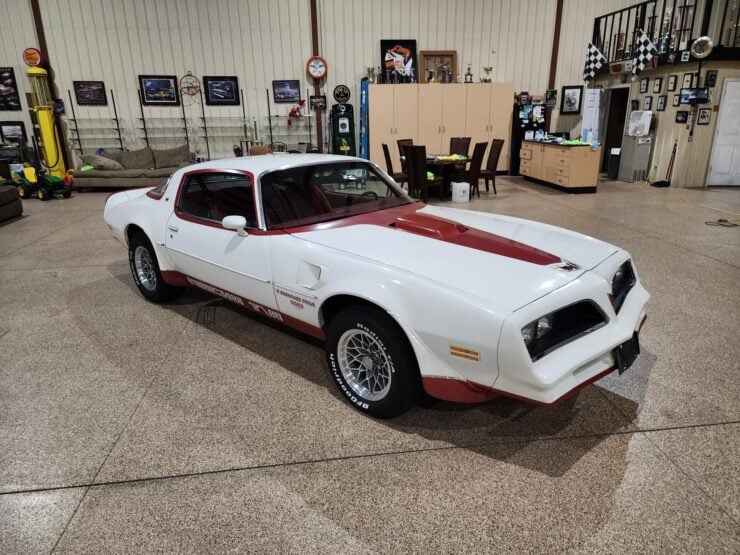
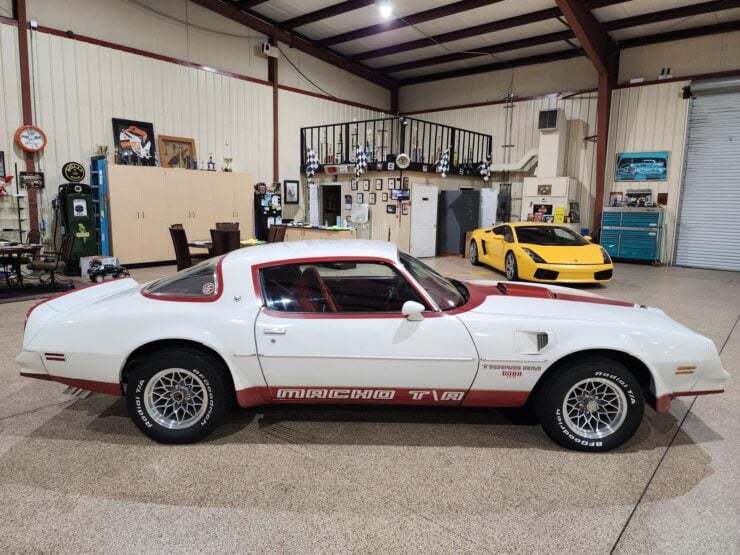
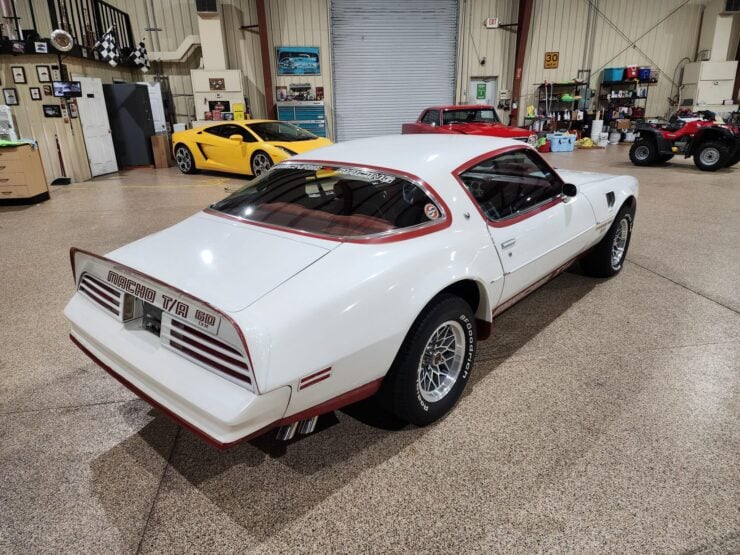
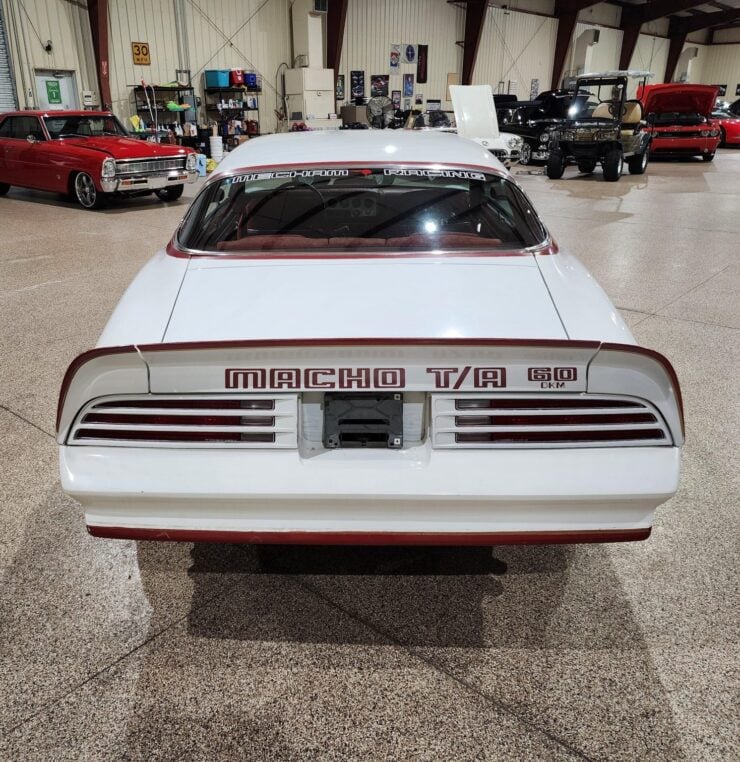
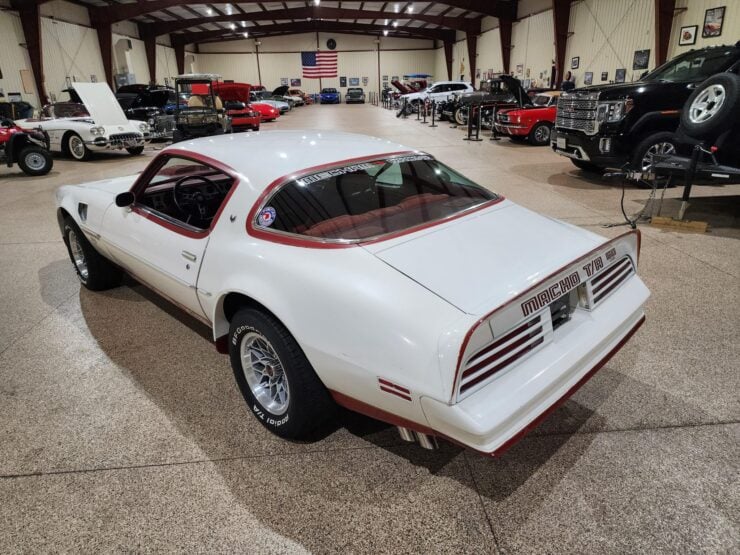
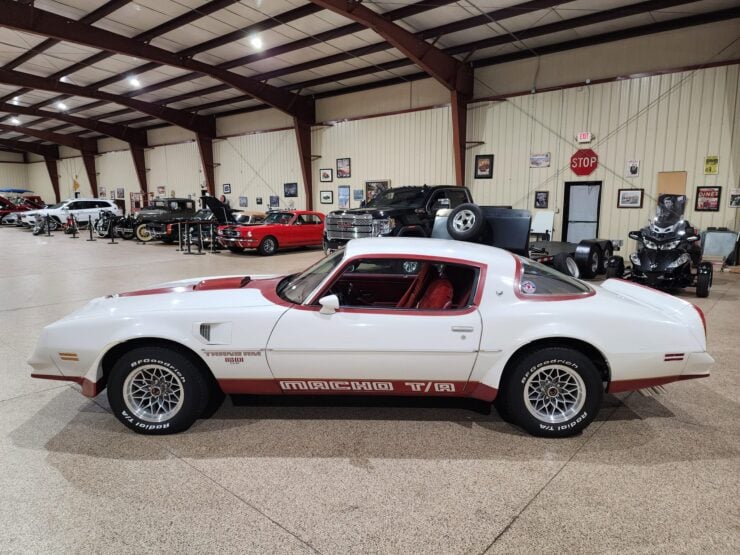
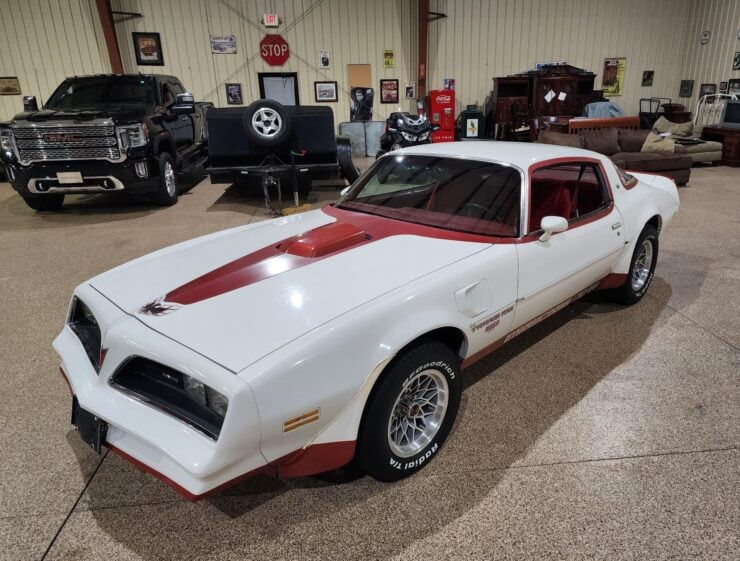
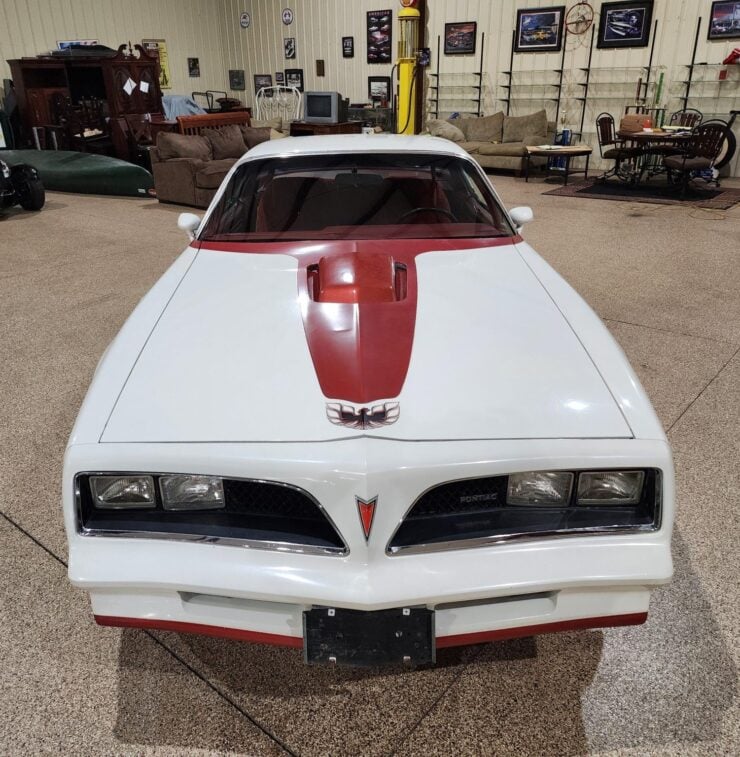
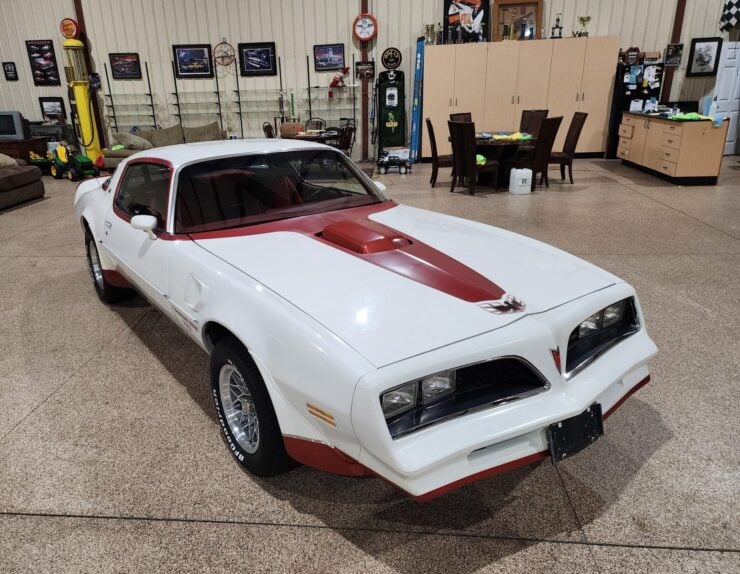

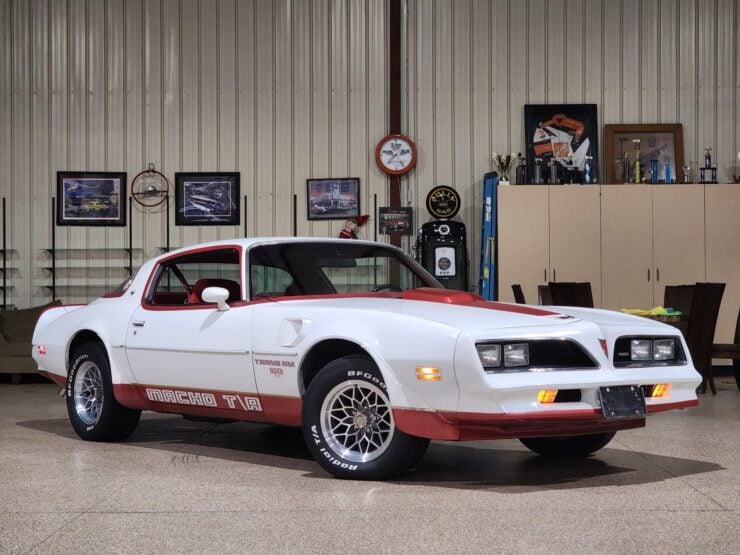
Images courtesy of Bring a Trailer

